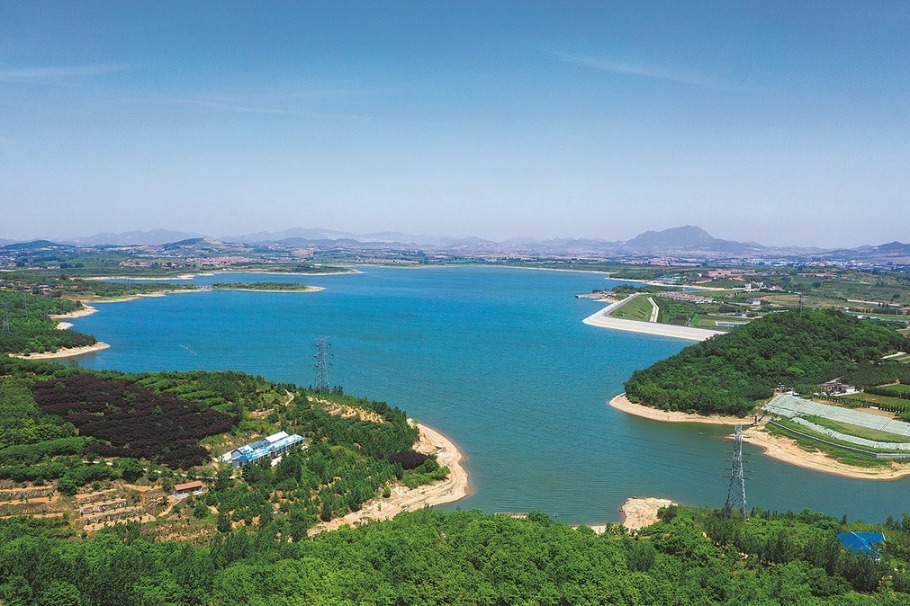Renewable energy collaborations mutually beneficial, official says


China and Brazil enjoy a long history of climate cooperation with the launch of their first China-Brazil Earth Resources Satellite in 1988 serving as a vivid example, said Ricardo Galvao, president of Brazil's National Council for Scientific and Technological Development.
The CBERS program has supported environmental monitoring, resource management and climate research, he said.
"China's plans for sustainable energy production are also very robust, and I really appreciate China's efforts in nuclear energy, as it will be an essential option for the future," he said, adding world leaders need to consider the long-term impacts of their policies.
"Short-sighted economic strategies cannot solve long-term problems like climate change," he said.
Galvao, former director of the National Institute for Space Research and the Brazilian Center for Research in Physics, has been a key figure in the satellite program.
On April 14, last year, China and Brazil issued a statement emphasizing the urgent need to combat climate change and promote sustainable development. A key outcome of the agreement was the upcoming launch of CBERS-6, which will be equipped with synthetic aperture radar that can create images through cloud cover.
"This is going to be very important in Brazil because the Amazon is cloud-covered most of the year. The SAR capability is essential to track environmental changes accurately," Galvao said.
"The Amazon is critical not only for Brazil but for the entire planet," Galvao said. "Studies show that if Amazon deforestation surpasses 20 to 25 percent, the rainforest could reach an irreversible tipping point, it may not be able to sustain itself as a rainforest. The forest's moisture production would decrease."
Such losses, he noted, would have serious consequences for the stability of the global climate.
Beyond CBERS which is a flagship project, Galvao sees greater potential for cooperation between Brazil and China.
"China is a world leader in battery production and the use of rare earths, and Brazil has complementary resources and expertise in these areas," he said.
He believes that expanding cooperation can drive progress in renewable energy and sustainable technologies.
"Brazil's energy matrix is about 75 percent renewable, so it has experience and insights to share with China in the clean energy sector," he added.
Galvao also highlighted China's experience in building "smart grids", which are essential for integrating renewable energy into the national grid.
"Brazil has great potential in wind and solar power generation, and collaboration with China on smart grids can strengthen our national energy infrastructure," he said.
Galvao emphasized the importance of comprehensive international agreements and sustainable development strategies, cautioning that isolated actions are insufficient.
"It does not help much if Brazil preserves the Amazon while other countries continue high greenhouse gas emissions, so we must collaborate with other countries," he said.
Recently, Brazil's National Council for Scientific and Technological Development allocated 3 million reais ($518,000) for Amazon study, focusing on biodiversity, hydrology and climate vulnerability.
"This is not only about monitoring deforestation but also understanding the broader ecological and social impacts of climate change on the region," he said.
- Renewable energy collaborations mutually beneficial, official says
- Xinjiang sees rapid growth of foreign trade
- Centralized system enables efficient operation and maintenance
- Shanghai Pudong airport begins construction of Terminal 3
- Former Dongguan Party secretary Xu Jianhua investigated
- China to send 1,500 packs of sports equipment to several BRI countries





































